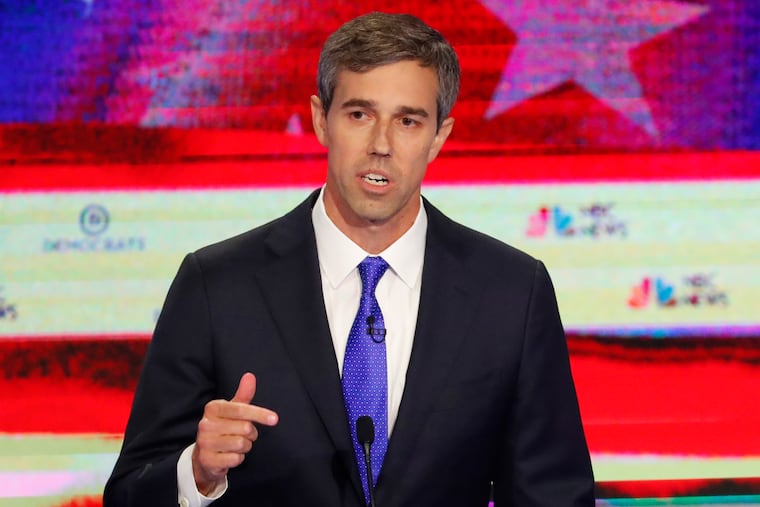First I laughed at Democratic nominees speaking Spanish. Then I worried. | Opinion
During Wednesday’s debate, I could not help but laugh when Cory Booker and Beto O’Rourke started speaking Spanish. But then I realized the deeper place my laughter was coming from, and why it worries me for the rest of the election.

Last week, 20 Democrats campaigning for the presidency took the stage for their first 2020 primary debate. During Wednesday’s debate, I — along with much of the internet — could not help but laugh when Cory Booker and Beto O’Rourke started responding in Spanish.
I’m a native Spanish speaker born and raised in Puerto Rico. It was hilarious for me to hear them incorrectly pronounce words, incorrectly conjugate verbs, and incorrectly use prepositions in their sentences, with so much earnestness.
O’Rourke spoke Spanish first, and Booker’s reaction was priceless. Together with the Booker’s-face memes that immediately began to fill my Twitter feed, this was one of the highlights of my night. Just when I thought this “I am going to start speaking Spanish” trend was a one-time thing, Booker joined O’Rourke and started answering a question in Spanish.
At first I just enjoyed Booker and O’Rourke bringing — if unintentionally — some laughs into the debate. But then I realized the deeper place my laughter was coming from, and why it worries me for the rest of the election.
It wasn’t their accents, nor their incorrect pronunciation. I believe that there is no such thing as unaccented Spanish, and ultimately nonnative accents were less important than the issues debated.
Essentially, I started laughing out of frustration and disbelief: I felt that the debate was becoming a race to see which candidate could best exploit the Spanish language in a cheap play for votes from Latino community.
I seemed to me another case of hispandering, a combination of the words “Hispanic" and “pandering” that refers to political support of the Hispanic community and its issues for self-serving interest. But gaining the support of the Latino community will take much more than proving you can say a simple “Hola yo hablo español.”
Especially since what the candidates said in Spanish was not as substantial as I would have expected it to be.
When asked if he supported a 70% top tax rate, O’Rourke responded partially in Spanish and stated the importance of how everyone’s voice should be heard in this economy. His response rather seemed generic and predictable, and he didn’t target a specific problem for the Latino community of the United States. If he is going to speak in Spanish, it would have been more significant to explain economic obstacles faced by this community and propose solutions to them.
Meanwhile, when Booker was asked what he would first do when elected president, he responded in Spanish by saying that President Trump has attacked and demonized immigrants, stating how he will change this unacceptable situation.
Yes, Booker directly responded to the question when he continued in English. But, his statement in Spanish is not a new observation to a Latino audience already familiar with the way the current administration treats immigrants. Worse yet, it does not propose clear, tangible solutions to the problem of immigration in the United States.
After understanding what Booker and O’Rourke said in Spanish, I realized just how superficial their attempt to reach out to the Latino community was. I would like to hear — in either English or Spanish — how candidates plan to confront real issues, such as health disparities among Latinos, the immigration and border crisis, and deportation. Approximately 55% percent of Hispanics in the United States live with the fear that a family member and/or friend could be deported, according to the Pew Research Center.
As a Puerto Rican, moreover, listening to candidates speak Spanish and not even mention the Island makes me feel hopeless. I have grown up as the political and economic instability of the island, and the inaction of the United States to respond efficiently, has worsened. When speaking Spanish, candidates should address the relationship between the island and the U.S. and react to ongoing issues, such as the U.S. government’s failure to effectively provide disaster relief funds after Hurricane Maria.
I laughed at Booker and O’Rourke’s competition of who is more proficient in Spanish. I laughed at how they believe speaking Spanish will somehow allow them to confront the issues faced by the Latino community, and bring hope. But for the rest of the election cycle, I hope to see candidates do more than just speak Spanish.